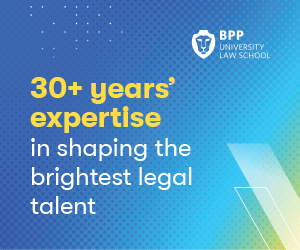
Feb 11, 2018
Written By Billy Sexton, Editor, AllAboutLaw.co.uk
Interview with Emma Reid, Trainee Solicitor at Herbert Smith Freehills
Feb 11, 2018
Written By Billy Sexton, Editor, AllAboutLaw.co.uk

Trainee solicitor Emma Reid works at Herbert Smith Freehills and is currently on secondment in Singapore. She mentions that the hours can be long, but says she wishes she “had known that there will be times when you will be quiet, and that it's OK not to be busy all the time.”
Have you been on an international secondment? How did this differ from being at your home office?
I am currently on secondment to our Singapore office.
The office is much smaller than London, which makes it different in a variety of ways. As a trainee, I have been given a lot more responsibility and had the opportunity to manage a few matters (with associate support when needed). The teams are smaller, and I have had the chance to speak to clients directly.
Being on secondment in Singapore in particular also has its own challenges in terms of time zones. On one deal I worked on, there were parties in four different time zones, which meant there were limited windows of time when everyone was available to discuss matters over the phone and reply to emails – not something that I had come across in London.
In your experience, is it important to be fluent in another language when working at an international law firm?
Personally, I haven't seen it to be important. The impression I have is that the firm will consider it a bonus if someone is fluent in a language, but it won't be a stumbling block to your career if you aren't.
What is the support system like at Herbert Smith Freehills? What do you do when you’ve got a problem or are stuck on a project?
I haven't had much need to use the support system in my time at the firm, as most of the work I am given is at an appropriate level for me to handle. However, when there have been occasions I have never found it a problem to turn to one of the associates in my team. One of the best things about Herbert Smith Freehills is that the culture is non-hierarchical, and I've found associates will make the time to explain things if they can see that you have taken a task as far as you can.
What are some of the things you know now about training contracts that you wish you’d known before applying?
The one thing that I wish I had known is that there will be times when you will be quiet, and that it is okay not to be busy all the time. Most of the stories I had heard about being a trainee, especially at an international law firm, were about how terrible the hours were and how hard trainees were worked. While it was good to be prepared for those times, nothing was mentioned about when departments are quiet, and I found it a bit disconcerting in my first few months when I wasn't working on many matters.
How do you handle the life-work balance when working at an international law firm?
It can be difficult to maintain a balance, especially during busy periods in transactional seats when the hours can be long. There are times when you won't be able to make evening or weekend plans. However, when transactional seats are quiet, there isn't ever a problem leaving on time.
What advice would you give to people currently applying for training contracts at international law firms?
Law is very much a “people industry” – it really matters whether you will fit in with the culture. It can feel daunting when you see how many very good law firms there are out there, so it's okay to be selective about where you apply and focus your energy on a few firms.
I found it really helpful to meet people from the firms I was thinking of applying to, whether at a law fair, open day or event. All international law firms have helpful recruitment websites, but they can't give you real insight into what the firm is like. Nothing compares with speaking to people to from the firm.
Interviews
- Talking vacation schemes and training contracts with White & Case
- What is life like as a legal trainee within the Government Legal Department?
- "All are equal under the law"
- "People are at the heart of everything that we do" : diversity and inclusion at RPC
- 'A Day in the Life' with Mills & Reeve Trainee, Inderpreet Heire


